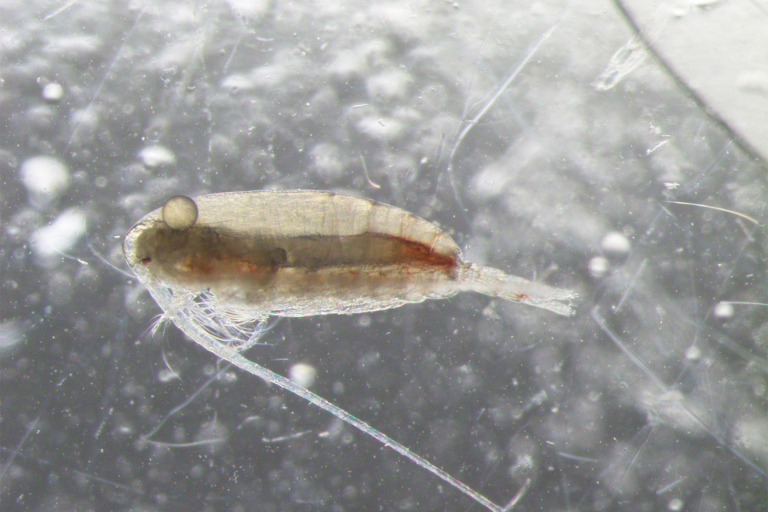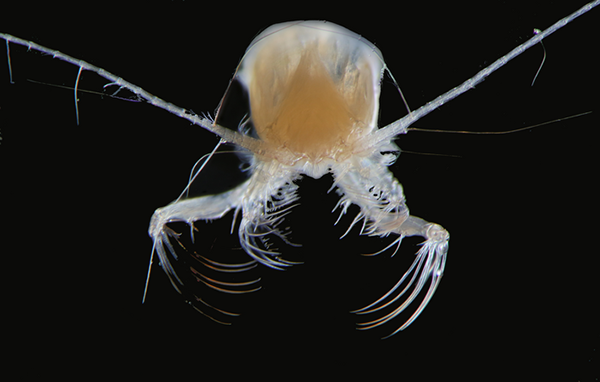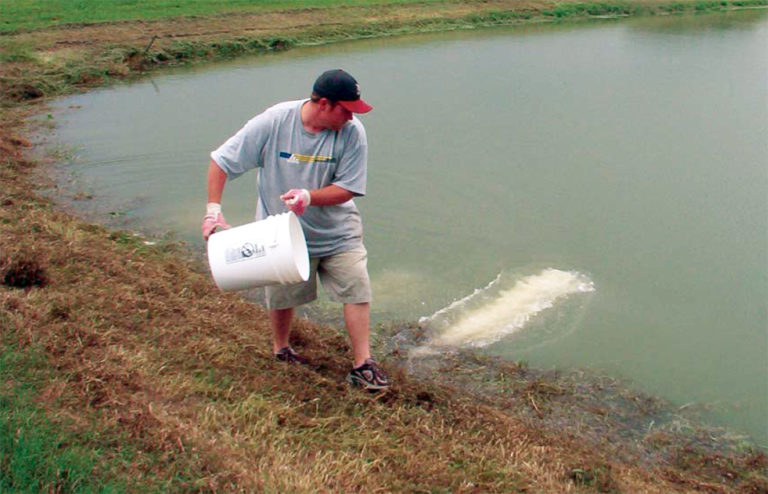
Fisheries
Estimating surface copepod concentrations using satellite imagery
This study estimated surface concentrations of the copepod Calanus finmarchicus using standardized satellite-derived enhanced RGB imagery.
Aquafeeds
Mysid meal can replace up to 100 percent of the fishmeal in P. vannamei diets with no harm to survival, growth, feed utilization or nutrient retention.

Fisheries
This study estimated surface concentrations of the copepod Calanus finmarchicus using standardized satellite-derived enhanced RGB imagery.

Fisheries
Australian team models the impact of climate change on zooplankton, which represents about 40 percent of the world’s marine biomass.

Health & Welfare
Honduras-based Grupo Granjas Marinas believes that large-scale production of rotifers and copepods and sequential pond inoculations, in combination with short shrimp growth cycles can significantly increase shrimp production while reducing dependency on other sources of protein in feeds.

Health & Welfare
Decisions on stocking channel catfish fry should be based on the abundance of large zooplankton in the pond water, rather than total zooplankton abundance.